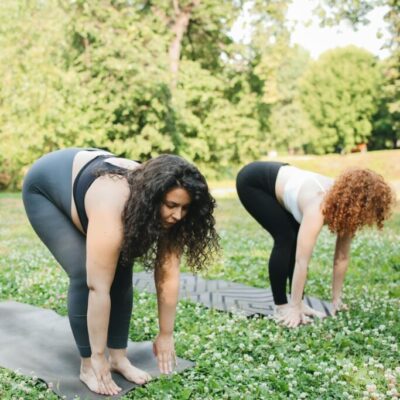The difference between coaching and therapy
While coaching may seem a lot like therapy, the two things are actually very different. Both involve working one on one with a professional to address something that you want to improve, but the similarities end there.
One of the biggest differences is that coaching is not intended to assess, diagnose, or treat a mental health condition. For those experiencing depression, anxiety, post-traumatic stress disorder, or other conditions, working with a therapist to manage those is essential before working with a coach to address other concerns.
Coaching is goal focused. Wellness coaching specifically is about identifying areas in your life where you want to enhance your health and well being and then addressing those things. This can be nutrition or fitness related; spiritual; general feelings of health or well-being; things that typically would not be address in traditional therapy.

“Coaching is the future-focused practice of partnering with clients in a thought-provoking and creative process that inspires them to maximize their personal and professional potential. Professional coaching focuses on setting goals, creating outcomes, and managing personal change.” – The International Coaching Federation
Learn more about the differences between counseling/therapy and coaching below
Coaching
- Future focused.
- Discussion of specific, stated goal(s).
- Is not appropriate to treat trauma.
- Focuses on changing behaviors.
- Is not covered by medical insurance.
- Coaches do not give medical and mental health diagnoses.
- Techniques may or may not be evidence-based.
- Coaching is typically shorter in duration and does not usually last years.
- More peer-based.
- Coaches may have more of a friendly relationship with clients and can share more of their life and personal experiences.
Coaches
- No required education, be sure to ask where your coach trained and research that program.
- No licensing or regulation by states, anyone can call themselves a coach.
- May have formal education in another field but no education is not required.
Therapy
- Explores your past experiences.*
- Discussion and processing of feelings about past experiences.*
- Addresses and treats trauma.*
- Focuses on changing patterns of thoughts as well as related behaviors.
- May be covered by medical insurance.
- Psychological testing may be done and a mental health diagnosis is given.
- Techniques and theories are usually scientifically evidence-based and empirically tested.
- Treatment is usually over an extended period of time, often years.
- Therapists have strict boundaries and do not share personal information with clients.
* Mental health therapy is based on a medical model which does not acknowledge or believe in past lives. Traditional therapy focuses on past experiences from your current life and would not address any past life or prior life issues.
Therapists
- Masters-level or PhD professionals, educated at accredited universities.
- Licensed by individual state(s), must pass a licensing exam.
- Required to take continuing education classes in order to maintain licensure.
- Who may call themselves a therapist or counselor is defined and regulated by law.
See a coach for:
Help with setting and working toward goals.
Health goals not addressed by your doctor.
Fitness and/or diet goals.
Increasing overall wellness.
Holistic health professionals may or may not be coaches.
You may want to work with holistic health professionals for specific approaches such as aromatherapy; reiki; intuitive guidance; astrological services; past life exploration; and other related services.
See a therapist for:
Mental health diagnoses such as:
Anxiety
Depression
Bipolar disorder
Trauma
Domestic violence or abuse
To be tested to see if you have a diagnosis such as ADHD, PTSD, or autism.
While you should not work with a coach to address mental health issues, it can be appropriate to work with a coach if you:
- Are already working with a therapist but want to address goals that your therapist does not cover. It is common for people to work with a therapist and an ADHD coach, for example.
Or
- Have worked with a therapist in the past and no longer need professional help managing your mental health diagnoses.
“Health is a state of complete physical, mental and social well-being and not merely the absence of disease or infirmity.”
– World Health Organization
All content copyright © 2024-2025, Stacey Aldridge, Kaya Holistic Wellness . May not be reproduced as a whole or in part without written permission.